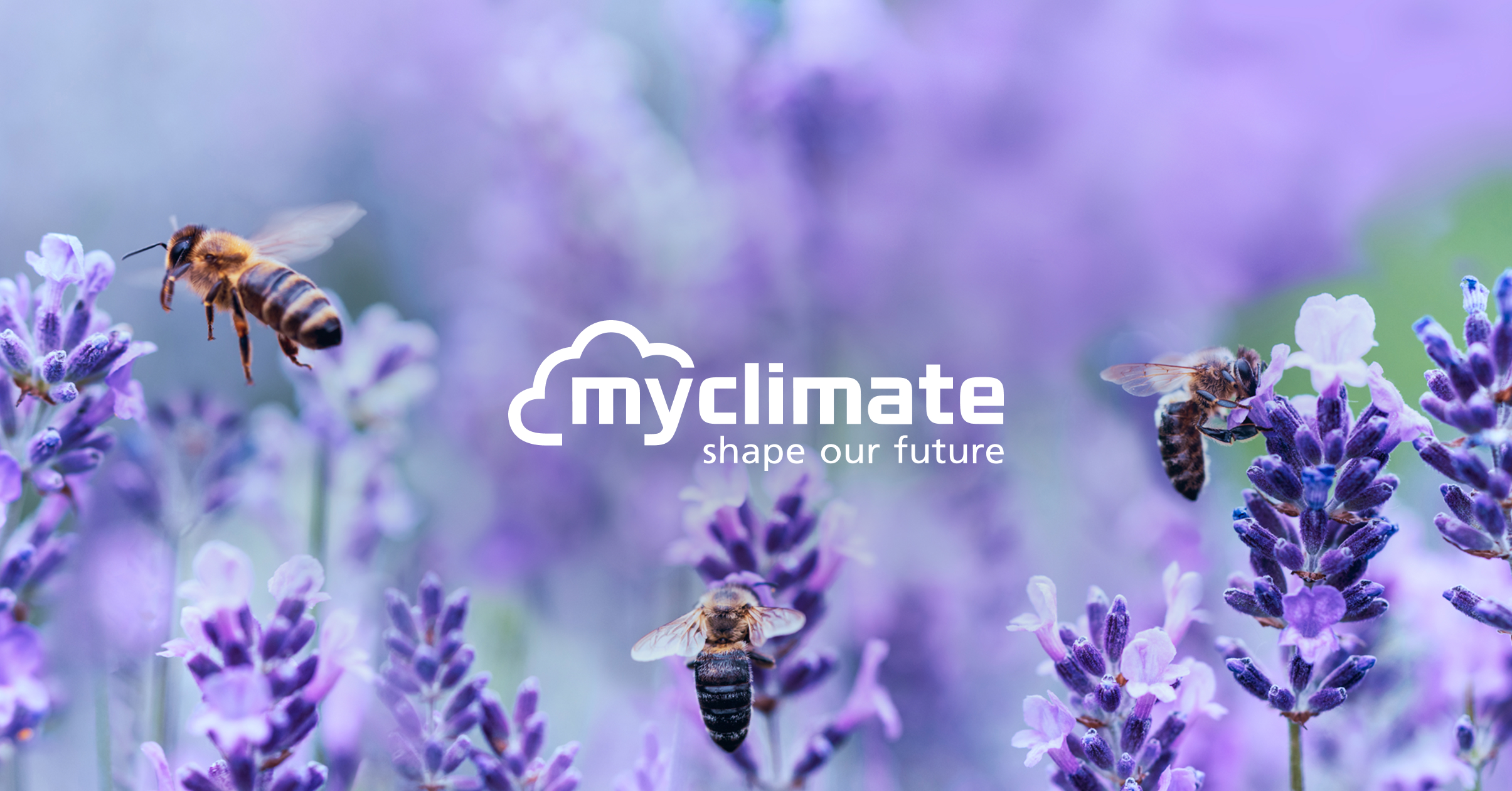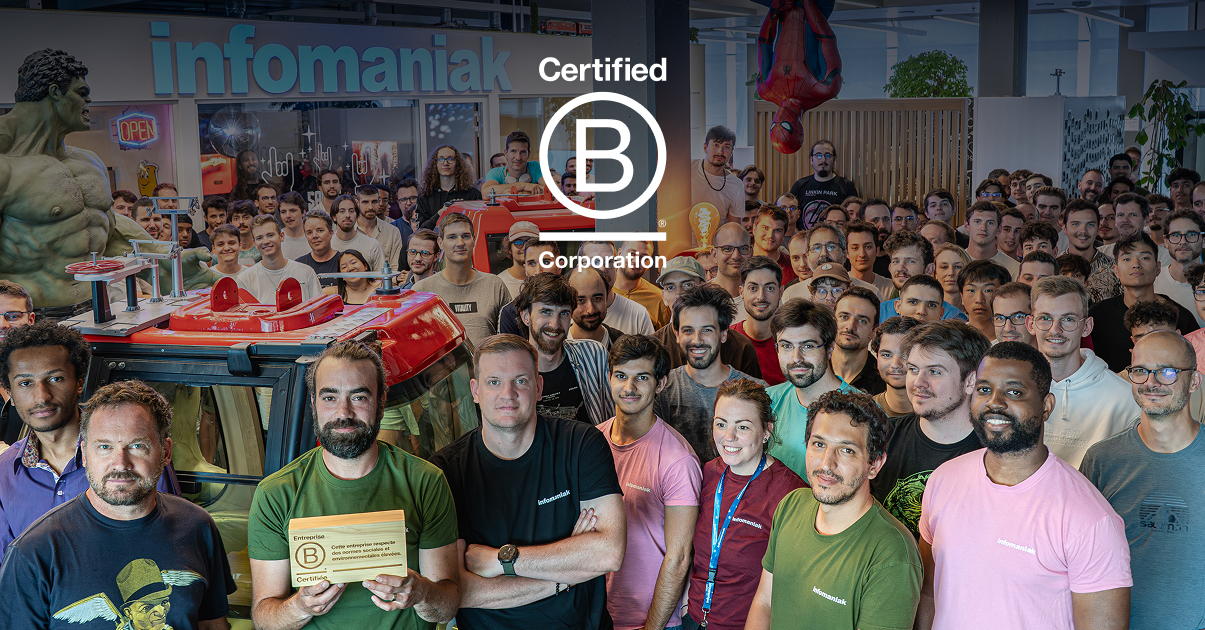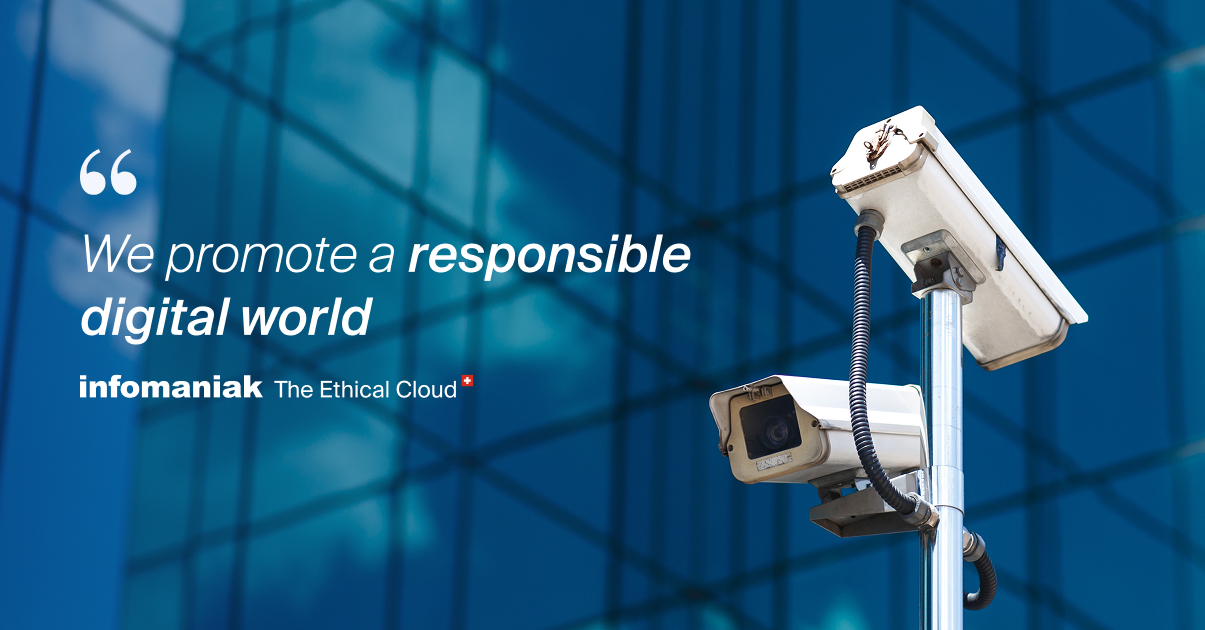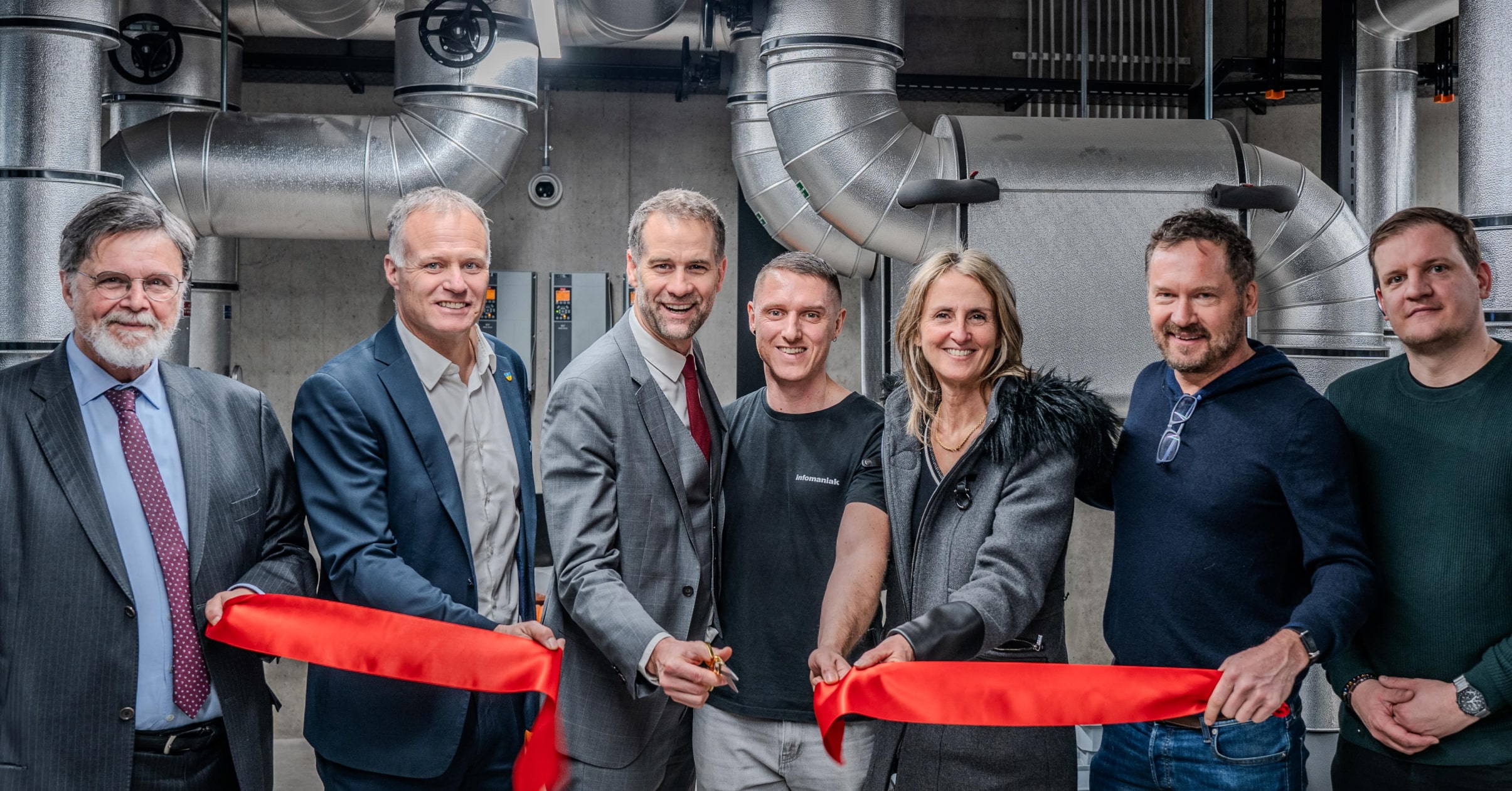From 43 to over 200 employees, from Swiss host to cloud and SaaS provider throughout Europe, Infomaniak has enjoyed amazing growth since 2015. To support our growth while retaining the company’s efficient, human spirit, we adapt our internal organisation. Shorter projects enable us to enjoy rapid returns on our work, develop products at a sustained pace and acquire a global vision of our impact. Our development processes are standardised with a view to enhancing quality and internal synergies while systematising our contributions to open source software.
“This gradual evolution fits naturally with the history of Infomaniak, which has constantly reinvented itself in order to adapt from within to changing contexts and environments. Julien Viard, VP of Engineering at Infomaniak
Organising talents in order to grow while retaining our DNA
To create productive apps that are increasingly interconnected and to coordinate a growing number of employees and projects, we adapt our work organisation to promote internal synergies and make every effort to ensure that each and every individual feels as if they are recognised and are playing their best possible role.
At Infomaniak, everyone should feel that they can be themselves and that their work has meaning.
How do you position yourself in relation to your colleagues? How do you evaluate your progress as a developer, system engineer or support operator? How do you build your career? How do you do what you love doing?
To reward people who invest their energy in the development of Infomaniak, we are building an engineering ladder that maps the different roles and responsibilities at Infomaniak. This results in greater granularity between positions. Each level is described in detail, allowing employees to position themselves and identify (with their help of their line managers) the areas where they can potentially learn and improve. This transparency with regard to the expectations and competences of the specific positions also contributes to the fair wage policy, which rewards competences and tangible impacts rather than seniority or a greater ability to promote accomplishments.
Making teams more agile with a view to maintaining our efficiency and seeing the fruits of our work in action more quickly
Infomaniak productivity tools form an ecosystem which will culminate in the launch of a suite of online productivity tools for companies and private individuals. In order to pursue the development of all the apps in this ecosystem as smoothly as possible, the teams are gradually being organised with a focus on the products rather than on specific occupations and departments. Driven by our developers, this approach is bearing fruit and is now generally applied to production (system engineers), support, UX designers and the project management unit (PMO).
“We are gradually moving away from traditional segmentation (admin/prod/dev/support/UX design) in order to create teams with more hybrid competences capable of communicating more easily. Each product benefits from a multi-disciplinary team which can set a course independently in order to move forward more effectively, without penalising or depending on the progress of other teams.” Julien Arnoux, VP of Engineering at Infomaniak
Segmenting development into small projects to ensure the smooth growth of our ecosystem
Today, people want to contribute to projects which have an impact while developing their competences. What can be done to encourage people to take on responsibilities while promoting creative energy and the idea of a job well done? Instead of running the risk of being numbed by a large, interminable mission, we divide large projects into several small phases and, as far as possible, take account of the affinities and competences of each individual in order to heighten the resulting pleasure, conviviality and efficacy. The project coordinators are tasked with finding the right balance between employees’ expectations, their competences and the direction they want to take.
Dividing large projects into segments makes it possible to deploy product developments progressively instead of in large blocks. This enables customers to benefit from improvements immediately without causing interruptions in terms of the user experience. Like Windows, macOS and mobile operating systems, we currently favour a soft, continuous product development process.
Increasing synergies in-house and with the open source approach
Pooling code to harmonise and accelerate our developments
The more teams are organised into silos, the less they succeed in communicating with each other and in sharing the fruit of their research. In these conditions, each team is faced with common concerns and the work is often duplicated.
We have adopted an underlying process of standardising processes with a view to transforming our technical progress into standardised and re-usable bricks. The result: our code will initially be available in-house in transverse libraries accessible to all teams. It will then be far easier to capitalise on the work of other teams to make progress on other projects. Through these choices, we will be able to speed up the development of our apps and enhance the quality.
Giving more to the open source community
Infomaniak technologies primarily call on the open source technologies to which we already contribute (OpenStack, mobile apps, Debian). Furthermore, Infomaniak is financially committed to major open source community events such as the WordCamps, the Joomla Days, the Drupal Camps or the DebConfs, the key meeting of Debian developers.
By creating libraries and pooling our resources in-house, we will go even further and give more to the open source community. Standardising our processes will make it possible to systematise our contributions far beyond the present level. We will introduce back-end and front-end guilds, with people tasked with ensuring they communicate with each other.
Growing while retaining the Infomaniak DNA
While the size and scope of Infomaniak is changing, our DNA remains the same. Infomaniak remains Infomaniak. We adapt our work organisation with the tools necessary to grow smoothly compared to competitors who do not always place their employees at the forefront of their concerns.
Agile and progressive change
“The improvements we make are, in reality, a work in progress. There will be no drastic overnight changes. We take the time to accommodate people so that each individual finds personal satisfaction and fulfilment. That is an essential point for us.” Marc Oehler, CEO Infomaniak
We remain attentive to initiatives, project feedback, upgrade requests and participation in projects. Our workflow adapts by means of increased prioritisation and more extensive brainstorming sessions upstream in order to avoid causing interruptions in the process and to include people as far as possible. Instead of mixing competences, we will have separate project leaders, developers, system engineers and UX designers. The teams will be more dynamic and will hand on the baton on a more regular basis. Responsibilities will also circulate more to reflect the growing number of employees and projects. In addition to being more stimulating for those involved, this configuration will also foster the transmission of knowledge and make the teams more accountable.
The importance of human criteria
The conditions for optimum career development are inextricably linked to fulfilment, pleasure and conviviality at work. To accelerate the transmission of knowledge between peers, we will also extend the mentoring scheme within certain teams by creating profile pairs (experienced/beginner).
The aim of the engineering ladder is to create a healthy and transparent environment in which employees can define their career path and feel both useful and confident in their role. While this approach allows individuals to position themselves quickly and precisely on a competence ladder and thus offers them greater self-awareness and familiarity with their environment, it is not the be-all and end-all.
“The challenge is to recruit technical profiles corresponding to our needs by endeavouring, fir and foremost, to identify the qualities of adaptation, communication and collaboration which will enabling an individual to flourish and be fulfilled in the different posts, ” Martial Fol, Production Manager at Infomaniak
In our recruitment process, we naturally test the technical level of the candidates, but there are also several interviews exploring other criteria such as soft skills, the ability to fit into the teams and to help others and the compatibility with group work (transversality) and the corporate culture. Ultimately, all these points are just as important as the rest in contributing to Infomaniak’s success.
A key improvement in quality
The engineering ladder facilitates the capitalisation on and transmission of components (code) which are re-usable between several products and within the teams. Our technologies will benefit from a more transversal know-how with even more advanced technical validation stages than at present. This increased in quality will strengthen the Quality unit while accelerating the consolidation of standards, for example with batteries of unit, functional, deployment, stack separation, library updating, version tests, etc.
Join the Infomaniak adventure
- Are you a developer, system engineer, UX designer, project manager or support operator? Then you might want to learn more about Infomaniak or contribute to the development of our Ethical Cloud. Feel free to consult our recruitment page on Welcome to the Jungle.
- You aren’t familiar with our services yet? Create a free email address with 15 GB of kDrive storage space to synchronize your documents and photos between all your devices.
More
Infomaniak inaugurates a revolutionary data center that recovers 100% of its energy to heat buildings
Tuesday January 28th, 2025

 Français
Français Deutsch
Deutsch Italiano
Italiano Español
Español




